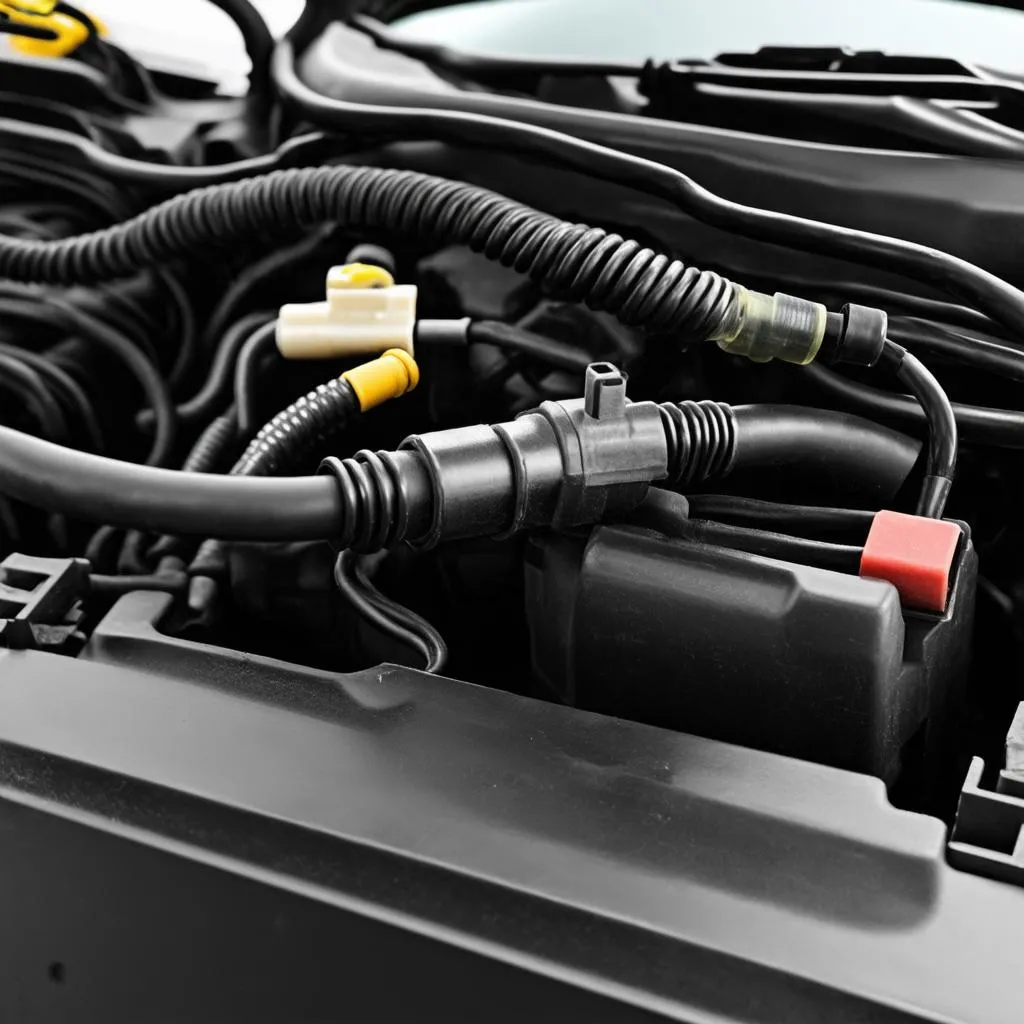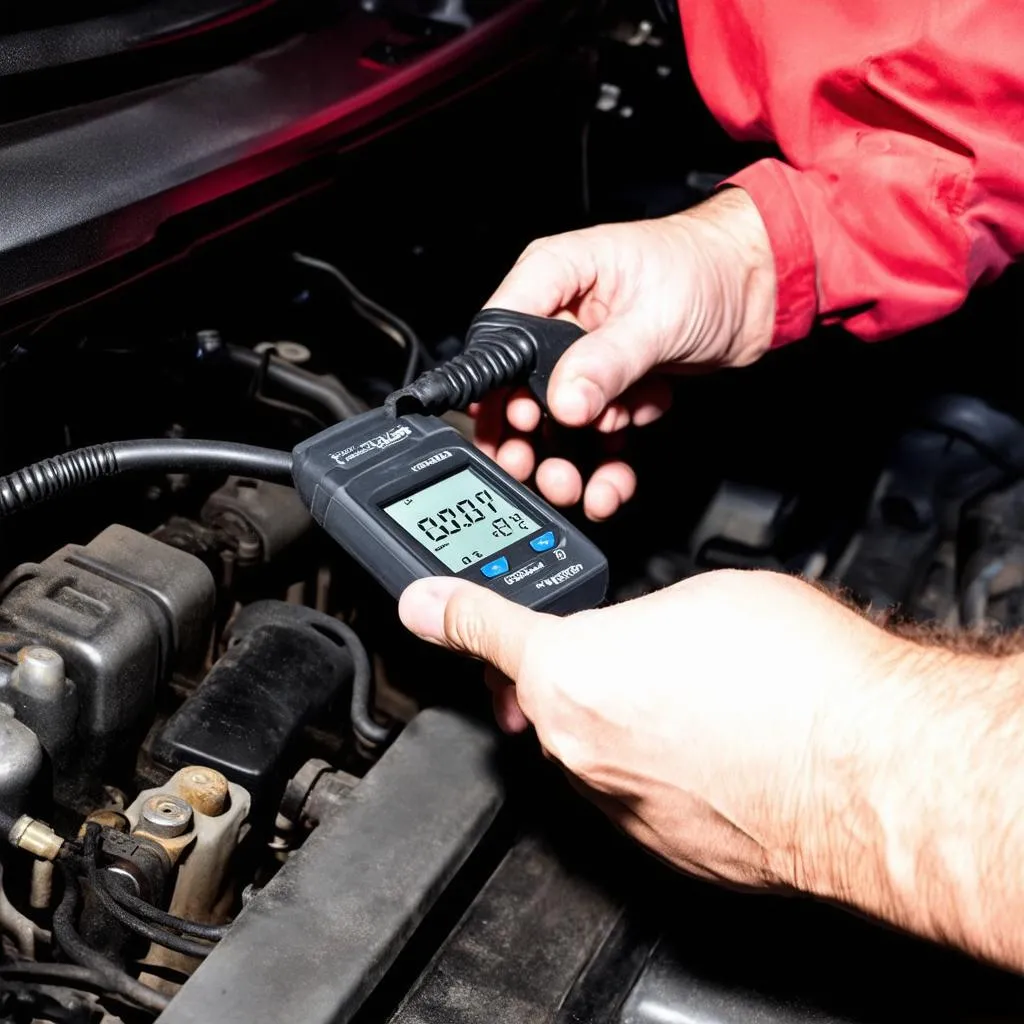Demystifying Oxygen Sensor Measure Blocks on Your 2001 Jetta with VCDS
Have you ever been driving your trusty 2001 Jetta, maybe on a scenic route along the California coast, when suddenly the “Check Engine” light decides to ruin the vibe? You pull over, heart sinking, wondering what could be wrong. A quick scan with your trusty VCDS reveals a code pointing to an oxygen sensor. But what do those “oxygen sensor measure blocks” really mean? Don’t worry, we’re here to break it down, no need for any mystical rituals or lucky charms!
Understanding the Cryptic Language of Oxygen Sensors
Before we dive into the measure blocks, let’s understand what these sensors do. Imagine them as the lungs of your engine, constantly measuring the oxygen content in the exhaust gases. This information is crucial for your Jetta’s computer (ECU) to maintain the perfect air-fuel ratio, ensuring optimal performance and fuel efficiency.
Why Measure Blocks Matter
Now, those measure blocks you see on your VCDS are like windows into the soul of your oxygen sensors. They provide live data streams, showing you exactly how the sensors are performing. This data can reveal:
- Oxygen Sensor Activity: Are the sensors switching properly between rich and lean conditions? A lazy sensor can wreak havoc on your fuel economy and emissions.
- Fuel Trim Values: Is your ECU constantly adding or reducing fuel to compensate for a faulty sensor reading? This can indicate a problem that needs attention.
- Catalyst Efficiency: Your catalytic converter relies on healthy oxygen sensors to function properly. Measure blocks can give you insights into its health.
Common Issues and Solutions
Here are some common scenarios you might encounter:
Scenario 1: Your VCDS shows a sluggish oxygen sensor signal.
Possible Cause: A worn-out sensor, often due to age or contamination.
Solution: Replacement is usually the best course of action. Consider it a small investment for a healthier engine and a happier wallet at the gas station.
Scenario 2: Your fuel trim values are out of whack.
Possible Cause: A faulty oxygen sensor sending incorrect data to the ECU, leading to an imbalanced air-fuel mixture.
Solution: Again, replacing the suspect sensor is usually the most effective remedy.
 Oxygen Sensor
Oxygen Sensor
Navigating VCDS for Oxygen Sensor Insights
Don’t be intimidated by VCDS; it’s your friend! Here’s a simplified guide to accessing those vital measure blocks:
- Connect and Scan: Connect your VCDS cable to your Jetta’s OBD-II port and start a scan.
- Engine Electronics: Select “Engine Electronics” (01 – Engine) from the control module list.
- Measuring Blocks: Go to “Measuring Blocks” (08 – Meas. Blocks).
- Channel Selection: Enter the specific block number for your desired oxygen sensor data. Refer to your VCDS manual or a reliable online resource like Ross-Tech’s wiki for specific block assignments.
FAQs: Your Burning Oxygen Sensor Questions Answered
Q: How often should I replace my oxygen sensors?
A: While they’re not maintenance items like air filters, oxygen sensors do wear out over time. Most manufacturers recommend replacement between 60,000 and 90,000 miles.
Q: Can I replace an oxygen sensor myself?
A: With a bit of mechanical aptitude and the right tools, it’s doable. However, if you’re not comfortable working on your car, it’s best to leave it to the pros.
Q: Are aftermarket oxygen sensors a good idea?
A: While cheaper options exist, sticking with OEM or reputable aftermarket brands is recommended. The slight price difference is worth the peace of mind knowing you’re getting a quality sensor.
 Car Diagnostic
Car Diagnostic
Beyond the Sensors: Holistic Car Care
Remember, just like our own well-being, car maintenance is about more than just fixing what’s broken. Regular checkups, using quality parts, and addressing issues promptly will keep your Jetta running smoothly for years to come.
Need a Helping Hand? We’re Here!
Still feeling lost in the world of oxygen sensors and VCDS? Don’t fret! Our team of automotive experts is just a message away. Contact us on WhatsApp at +84767531508 for personalized support, installation guidance, and any other car diagnostic needs. We’re here to help you get back on the road with confidence!
Explore More:
- Check out our other articles on car diagnostics and repair.
- Discover the latest tools and technologies for DIY car maintenance.
- Connect with our community of car enthusiasts for tips, advice, and support.
